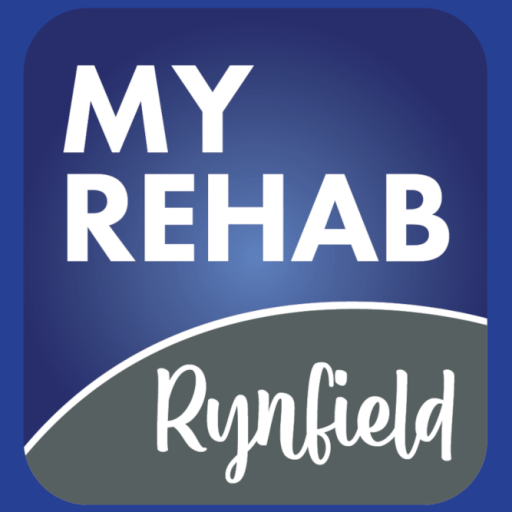
Relapse Prevention and Aftercare
Relapse Prevention and Aftercare
At MyRehab, we help you build essential relapse prevention skills and provide thorough aftercare support to guarantee your recovery is both sustainable and empowering. You’ll identify personal triggers and develop coping strategies tailored to your needs. Our holistic approach, which includes mindfulness practices and community involvement, fosters a supportive environment for lasting change. You’ll be surrounded by understanding peers, making your journey smoother. There’s so much more to explore about maintaining your recovery effectively.
Relapse Prevention
Understanding relapse prevention is essential for anyone on the road to recovery, as it helps you identify and manage triggers that could lead to a setback. Recognizing your personal triggers—whether they’re emotional, environmental, or social—allows you to develop coping strategies. You can create a plan that includes avoiding high-risk situations and seeking support when needed. Remember, it’s normal to feel tempted at times, but having a clear strategy can strengthen your resolve. Engaging in healthy activities, surrounding yourself with supportive people, and practicing mindfulness can all play significant roles in your prevention plan. By making these proactive choices, you can maintain your progress and foster a lasting recovery, ultimately leading to a healthier, more fulfilling life. Additionally, utilizing evidence-based practices can enhance your recovery journey by providing proven strategies for maintaining sobriety.
The Role of Aftercare in Recovery
Aftercare plays a vital role in your recovery journey, as it provides ongoing support and resources to help you maintain sobriety. It bridges the gap between treatment and everyday life, ensuring you don’t feel alone when facing challenges. With regular check-ins, support groups, and counseling sessions, aftercare helps reinforce the skills you learned during treatment. You’ll develop a strong support network that fosters accountability and motivation, making it easier to resist triggers and temptations. Additionally, aftercare can assist you in addressing any underlying issues that may have contributed to your addiction. By staying engaged in aftercare, you can build a healthier lifestyle and improve your chances of long-term recovery. Remember, recovery doesn’t end with treatment; it’s an ongoing process. Ongoing aftercare is essential for addressing the multifaceted nature of addiction, ensuring that all aspects of your well-being are supported.
MyRehab’s Holistic Approach
While aftercare provides the necessary support to maintain sobriety, MyRehab takes this a step further by offering a holistic approach to recovery. This means you won’t just focus on abstaining from substances; you’ll also address your mental, emotional, and physical well-being. At MyRehab, you’ll engage in activities like yoga, meditation, and art therapy, helping you develop coping skills and reduce stress. You’ll work with trained professionals who understand that recovery isn’t a one-size-fits-all journey. Instead, they tailor your experience to fit your unique needs. By integrating various healing methods, you’ll build a solid foundation for lasting change. This holistic approach empowers you to foster a healthier lifestyle and truly embrace your recovery journey.
Tools and Strategies for Managing Triggers
Managing triggers is essential for maintaining your sobriety, especially when you encounter situations that tempt you to relapse. One effective strategy is to identify your triggers in advance. Write them down and develop a plan to avoid or cope with them. Practice mindfulness techniques, such as deep breathing or meditation, to help you stay grounded during stressful moments. Another useful tool is to engage in healthy distractions—exercise, hobbies, or spending time with supportive friends can redirect your focus. Additionally, create a list of positive affirmations to remind yourself of your commitment to sobriety. Ultimately, keep a journal to track your feelings and responses, helping you recognize patterns that may lead to triggers in the future.
Building a Supportive Community
Building a supportive community is essential for your long-term recovery, as it provides the encouragement and accountability you need to stay on track. Surrounding yourself with people who understand your journey can make a significant difference. Seek out friends, family members, or support groups who share your goals and values. Engage in regular meetings or activities that foster connections with others in recovery. Open up about your struggles and triumphs; this vulnerability helps strengthen bonds. Remember, it’s not just about finding support, but also about offering it. By being there for others, you’ll reinforce your commitment to sobriety. Together, you’ll celebrate milestones and navigate challenges, creating a network that uplifts and inspires you along the way.
Success Stories: Lasting Sobriety With Myrehab
Success stories from individuals who’ve embraced Myrehab highlight the transformative power of dedicated support and resources in achieving lasting sobriety. You’ll find inspiring tales of those who faced their struggles head-on, utilizing Myrehab’s tailored programs and compassionate guidance. Many shared how the structured aftercare and relapse prevention strategies equipped them with tools to navigate life’s challenges without turning to substances.
They often mention the importance of building connections within the supportive community, which fosters accountability and encouragement. You can relate to their journeys, as they remind you that recovery isn’t just a destination; it’s an ongoing process. With Myrehab, lasting sobriety is not just a dream—it’s an achievable reality with the right support and commitment.
Frequently Asked Questions
How Long Does Aftercare Typically Last After Treatment?
Aftercare typically lasts anywhere from a few months to a year, depending on individual needs. You’ll find ongoing support and resources essential during this time to maintain progress and prevent relapse effectively.
Can Family Members Participate in Aftercare Programs?
Yes, family members can definitely participate in aftercare programs. Their involvement fosters support, strengthens relationships, and helps create a network of encouragement, which can be essential for your ongoing recovery journey.
What Should I Do if I Experience a Relapse?
If you experience a relapse, don’t panic. Acknowledge what happened, reach out for support, and reassess your coping strategies. Learn from the setback, and refocus on your goals to regain momentum in your recovery journey.
Are There Costs Associated With Aftercare Services?
Yes, there are costs associated with aftercare services. You’ll need to evaluate factors like program type, duration, and location. It’s best to research and compare options to find what fits your budget and needs.
How Can I Stay Motivated During Aftercare?
Staying motivated during aftercare is essential. Set achievable goals, celebrate small victories, connect with supportive peers, and remind yourself of the reasons you started this journey. Keep your focus on progress, not perfection.
In your journey to recovery, understanding relapse prevention and embracing aftercare can make all the difference. MyRehab’s holistic approach equips you with effective tools and a supportive community to tackle triggers head-on. Remember, you’re not alone; many have walked this path and found lasting sobriety. By staying committed and utilizing the resources available, you can build a fulfilling, sober life. Trust the process, stay connected, and keep moving forward—your brighter future awaits!
